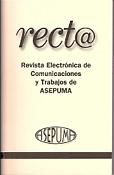Exact methods for variable selection in linear regression with subsets: Analysis of different tools and strategies
DOI:
https://doi.org/10.24310/recta.18.1.2017.19916Palabras clave:
Variable selection, Composite indicators, Branch & Bound methods, Pre-selection, HeuristicsResumen
The abstract should summarise the context, contents and conclusions of the paper in less than 200 words preferably in less than 150 words. It should not contain any references or displayed equations. Typeset the abstract in Times New Roman and indent the text. Type similarly the keywords below. A variable selection problem in the context of Linear Regression is analyzed. In this case, the set of original independent variables is partitioned into disjoint groups. The problem consists in the selection of independent variables, but with one restriction: the set of variables that is selected should at least have one variable from each group. This problem has a wide scope of application, specifically the design of composite indicators in different areas (sociology, and economy, among others). The different groups of variables correspond to different viewpoints of the problem under analysis. Therefore, these indicators should contain independent variables from all the groups. For this problem, a Branch & Bound method is proposed to obtain optimal solutions. Moreover, two strategies are proposed and analyzed, to reduce the calculation times of this method. Different computational experiments were completed that showed the good results of both strategies, (both separately and jointly): they managed to reduce the calculation times of the Branch and Bound method considerably, thereby offering solutions to moderated-sized problems.
Descargas
Publicación Facts
Perfil de revisores N/D
Información adicional autores
Indexado: {$indexList}
-
Indexado en
- Sociedad Académica/Grupo
- N/D
- Editora:
- UMA Editorial. Universidad de Málaga
Descargas
Publicado
Cómo citar
Número
Sección
Licencia

Esta obra está bajo una licencia internacional Creative Commons Atribución-NoComercial 4.0.









